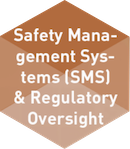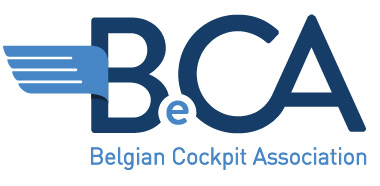Safety Management Systems (SMS) & Regulatory Oversight
 | What? | MS is an essential part of an operator’s Management System. This business-like approach to safety should consist of clear policies and objectives, safety risk management, safety assurance and promotion. |
Why? | Some operators consider SMS as ‘a tick in a box exercise’. If so, hazards can remain unidentified, there is no Management of Change (MoC) and the company’s safety culture may suffer leading to a decrease in safety margins. | |
How? | BeCA demands competent oversight and will pursue airline management and BCAA to act whenever SMS performance might be below standard |
On October 15, 2014, the deadline for SMS implementation expired. Do you remember: SMS? Safety Management System(s)? If you are an operational crew member you should have received training. If not, something is amiss. SMS is not just “another safety project”. ICAO dedicated a brand new Annex (19) to the concept. It’s all about defining a common and integrated way of managing safety within the aviation industry. Don’t have much time? Take a look at this excellent one-minute summary. It’s created by the FAA but is fully compliant with EASA and ICAO-regulations
{youtube}BdkC7hZQAJY{/youtube}
Four pillars of SMS
SMS comprises four pillars. First of all, we have to set the rules of the game in Safety Policies & Objectives. Next, there is the day to day work: Safety Management and Risk Assessment. Basically, we should be looking for hazards (anything that has the potential to cause harm e.g. weather, terrain, lack of training, inadequate supervision, unclear procedures,…), assess their associated risk and try to mitigate (read: minimize) that risk. Once we have the risk under control (read: it is at an acceptable level) then we should make sure we lock everything down through Safety Assurance – the 3rd pillar. Finally, we should tell people what a good job we have done; we call this Safety Promotion (often done via Safety publications, campaigns, training or other feedback).

Regulatory oversight
BeCA is worried about the move towards Performance Based Oversight (PBO). Although we agree that safety issues can be managed more rapidly and efficiently within the organisation compared to the authorities, we are afraid that PBO without competent oversight may lead to de-facto self-regulation. And we have seen the devastating consequences of self-regulation in other sectors e.g. oil & gas: BP Deep Water Horizon disaster, banking: financial crisis of 2008. It is therefore essential that operational expertise is ensured within the BCAA. Unfortunately, many experts prefer a well-paid position within an airline over the often bureaucratic and more rigid environment of a state department.
We wish to be a well-informed and objective stakeholder. A legitimate partner with a single objective: enhancing safety. In this context, we keep safety and industrial topics separate.
What does BeCA do?
BeCA members are professionals that want to execute their job as safe and efficient as possible. Thanks to our the operational feedback of our members we highlight possible unmitigated hazards to airlines and authorities. Real-life stories often help airlines to see beyond their safety performance indicators (SPIs) and really understand what is happening at the sharp end. Furthermore, we stimulate cross-organisation learning by sharing industry best practices to the flight operations & safety departments of the different Belgian Airlines. After all: there is no competition in safety.

